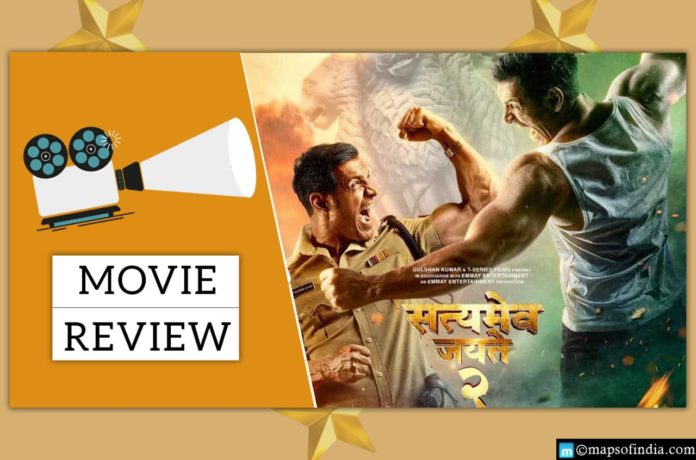This movie differs from its prequel Satyameva Jayate by addressing corruption and power greed. Writer-director Milap Zaveri and the movie’s crew insisted that it is a mass-market picture in the style of 1980s popular cinema. So when you watch John Abraham turn into a vigilante to punish those responsible for the deaths of innocent victims, you’re not as astonished as you are when you discover it’s Satya who gives out the death punishment. Jay is being persuaded to bring the vigilante to justice.
Milap does not attempt to hide the fact that he’s paying respect to 80s cinema. His dignity is evident in the movie script and dialogues — whether Satya calls the ACP to inform him that he won’t stop punishing the culprit, Jay’s introduction sequence or even Dadasaheb Azad (John Abraham as their farmer father) ploughing a poor farmer’s land. All of this and more simply adds to the spice of the plot.
Apart from the threat of corruption, Milap also covers farmer suicides, violence against women (Nirbhaya in Delhi, Veterinarian in Telangana), the Lokpal Bill, the significance of communal unity, and religious tolerance. The writer-director also makes a pointed observation about today’s media, which is more concerned with recording news and sensationalizing it on cameras and phones, even when someone is bleeding to death in broad daylight.
John Abraham seems at ease in this old-school, all-too-often tried-and-true commercial period drama stuff. He performs all three roles as well, whether as the twin brothers or as the father. If he is restrained as Satya, he is not afraid to play to the gallery as Jay or as Dadasaheb, a humble farmer who leads the campaign for the Lokpal Bill in the assembly.
Divya Khosla Kumar is charming and has a significant role in this usually male-dominated film. Vidya does not mince words when she disagrees with and fiercely opposes her husband Satya and her Minister dad on several problems. Gautami Kapoor plays Dadasaheb’s spouse as well as Satya and Jay’s mother. The music is pleasant to listen to, whether it’s the wedding song Tenu Lehanga or the Karwa-Chauth song Meri Zindagi Hai Tu, and Nora Fatehi shines in the Kusu Kusu song.
The real hardcore action is the film’s centrepiece, and John does not miss it, whether he has to lift a motorbike with a rider and toss it, take out an SUV’s engine, or even tear a few meters of dirt by slamming his plough in a field. There are countless scenes for action fans to enjoy. However, while we realize the picture is a type of tribute to the over-the-top filmmaking of the 1980s that we once wanted, some moments, such as three characters of John Abrahams keeping a helicopter from taking off with their bare hands, are too much for the most OTT tastes.





